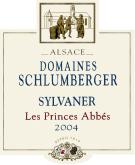History
The Sylvaner grape variety first appeared in Lower Alsace towards the end of the 18th century, and came from Austria. It is the most widespread grape variety in Alsace, particularly in the Lower Rhine.
Location
Sylvaner mostly comes from the BUX plot but also from the Grand Cru Kessler plot.
Wine-making
Pressed pneumatically, static settling of the lees. Fermented in temperature controlled stainless steel vats. Bottled during the year of production.
Gastronomy
- Ham and sausages
- Seafood, fishes (terrine, sushis …)
- Quiches, pies, souffles
- Salads
- … or just when you’re thirsty
Serve at 12°C
Learn more about food & wine pairing
Tasting
The robe is a lemon yellow with green reflections of good intensity. The disk is bright and limpid.
The pleasant, reserved, fine and delicate nose reveals delicate fine fruity notes, citrus fruits, lemon zests, floral flavours.
Aeration enhances the whole, while revealing a fine candied note. The nose is elegant, complex and hints toward a feeling of freshness.
The mouth evolves on a sharp, incisive medium with a touch of airiness.
The range of flavours is marked by the fruity side of citrus fruits. The finish offers a frank vivacity.
The pleasant, reserved, fine and delicate nose reveals delicate fine fruity notes, citrus fruits, lemon zests, floral flavours.
Aeration enhances the whole, while revealing a fine candied note. The nose is elegant, complex and hints toward a feeling of freshness.
The mouth evolves on a sharp, incisive medium with a touch of airiness.
The range of flavours is marked by the fruity side of citrus fruits. The finish offers a frank vivacity.
Technical sheet elaborated by M. Pascal Leonetti
Best Sommelier of France 2006
Sommelier at l’Auberge de l’Ill (*** Michelin)















